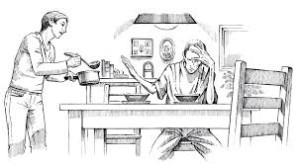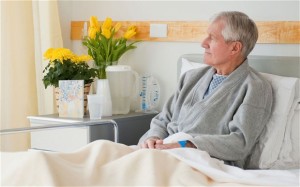The inversion of Cocaine in your brain
The inversion of Cocaine in your brain: Effects of Cocaine in the Nerve system

The inversion of Cocaine in your brain. Cocaine has an extremely rapid euphoric effect on the user, especially when smoked or snorted.
Cocaine is very addictive and a psychoactive drug affecting the central nervous system primarily. Originally it is prepared from the leaf of the Erythroxylon coca bush, which grows mainly in Peru and Bolivia. The simplicity of its usage has made the inversion of cocaine in your brain more chronic and threatening. As a matter of facts this drug is self-administered in several ways explains doctor Dalal Akoury. The most common method of cocaine abuse is snorting in its powder form into the nasal sinuses, either alone or with the accompaniment of heroin (speedball). This drug is easily available in the streets as a hydrochloride salt which is a fine, white crystalline powder known in several street manes as coke, C, snow, flake, or blow. Besides snorting, the drug can also be administered through smoking which for many is effective in producing quick result as crack cocaine.
According to the experts at AWAREmed Health and Wellness Resource Center, cocaine produces a wide range of physiological effects in humans, including the stimulation of a plethora of emotional experiences. When people take in cocaine, they become euphoric, over exited, highly active and more talkative than normal. When they use this drug, they experience the feelings of extreme power and alertness. This initial high is followed by sessions of severe anxiety, paranoia, and depression, which often lead to addiction. Those who become addicted to the drug often turn the habit into an obsession, so that they devote more, and more of their time and money to acquiring and using the drug explains doctor Akoury. Therefore what are some of the notable symptoms of addiction for users?
The inversion of Cocaine in your brain: Symptoms of addiction
People who abuse these drugs regularly often exhibit psychotic behavior such as:
- Hallucinations
- Delusions of persecution
- Mood disturbances
- Repetitive behaviors
All these closely resemble the symptoms of paranoid schizophrenia. Trained mental health professionals have difficulties in telling a schizophrenic and cocaine addict apart unless they know the patient’s background. Although the psychological and behavioral effects of cocaine use in humans have been well documented, the current knowledge of the neurological basis for the abuse of cocaine in humans is still limited. The majority of knowledge we possess about the mechanisms of the effects of cocaine comes from animal studies performed over the last 20 years. These studies have clearly demonstrated the crucial role of the neurotransmitter dopamine in initiating many of the effects of cocaine use.
The inversion of Cocaine in your brain: Effects on the brain
Cocaine is an indirect dopamine agonist. Once in the brain, it works in large part by occupying, or blocking, dopamine transporter sites in the terminal buttons of neurons in the brain. This prevents the reuptake of dopamine by the neurons that release it, allowing higher concentrations of dopamine to remain in the synapse for an extended period of time. This abnormally long presence, and high concentration, of dopamine in the synapse is believed to cause the high associated with cocaine use. Dopamine has been implicated in several important functions, including movement, attention, learning, and the reinforcing effects of drug use. Therefore, its extended presence in high concentrations will be effective in the particular parts of the brain that control these functions, such as the basal ganglia and the limbic system.
The inversion of Cocaine in your brain: Cocaine and the dopamine transporter
Studies have confirmed that the reinforcing effects of cocaine involve dopamine transporter molecules. In a dopamine study, a group of scientists produced a targeted mutation of the gene responsible for production of the dopamine transporter protein in mice. In their findings, it was established that several compensatory mechanisms in an animal’s brain help it to adapt to the chronically higher level of dopamine resulting from their mutation induced reuptake inability. One of these mechanisms is a large decrease in post-synaptic dopamine receptors, rendering dopamine less effective. Another strategy is a corresponding decrease in the concentration of tyrosine hydroxylase (enzyme responsible for the synthesis of dopamine), decreasing the availability of dopamine. So, when cocaine was administered to these animals, it had no effect on the animal’s behavior since dopamine reuptake no longer occurred due to lack of functional dopamine transporters. This therefore is a demonstration that the dopamine transporter is essential for cocaine to be able to produce its effects.
The inversion of Cocaine in your brain: A quick fix
Cocaine has an extremely rapid euphoric effect on the user, especially in the case of the smoking method of use, because the drug directly enters the pulmonary blood stream when smoked. Cocaine has a relatively short half-life in the plasma and in the brain. When administered intravenously (IV) to humans, the half-life is in the range of 16 to 87 minutes. This short half-life accounts for the rapid euphoric effects of the drug. Typically, when the drug is administered intravenously, it produces a fast “hit-and-run” effect on the potentiation of the extracellular levels of dopamine. Nonetheless when rats are given a continuous flow of dopamine intravenously, they experience a peak in dopamine levels in just 10 minutes followed by a return to regular levels after 20 to 30 minutes. Because the initial high experienced by cocaine abusers lasts for only a short time, the initial stimulatory actions of cocaine can be attributed to the elevation of synaptic dopamine levels.
Finally the use of drugs not necessarily cocaine is not your portion. Nothing actually comes good out of the use or abuse of drugs in whichever way you look at it. Being safe and free from drugs is the best thing you can do for yourself especially if you are already deeply addicted to it. There is help around you and doctor Dalal Akoury made one of the best decisions to give her professional contribution in helping the struggling societies with addiction. She decided to create a medical center whose main objective is to transform each individual’s life through increasing awareness about health and wellness and by empowering individuals to find their own inner healing power. You can also be part of this by scheduling for an appointment with her today and your life will be completely transformed for greater productivity ahead of you. Remember that doctor Akoury’s practice focuses on personalized medicine through healthy lifestyle choices that deal with primary prevention and underlying causes instead of patching up symptoms and this will be very good for you too.
The inversion of Cocaine in your brain: Effects of Cocaine in the Nerve system




